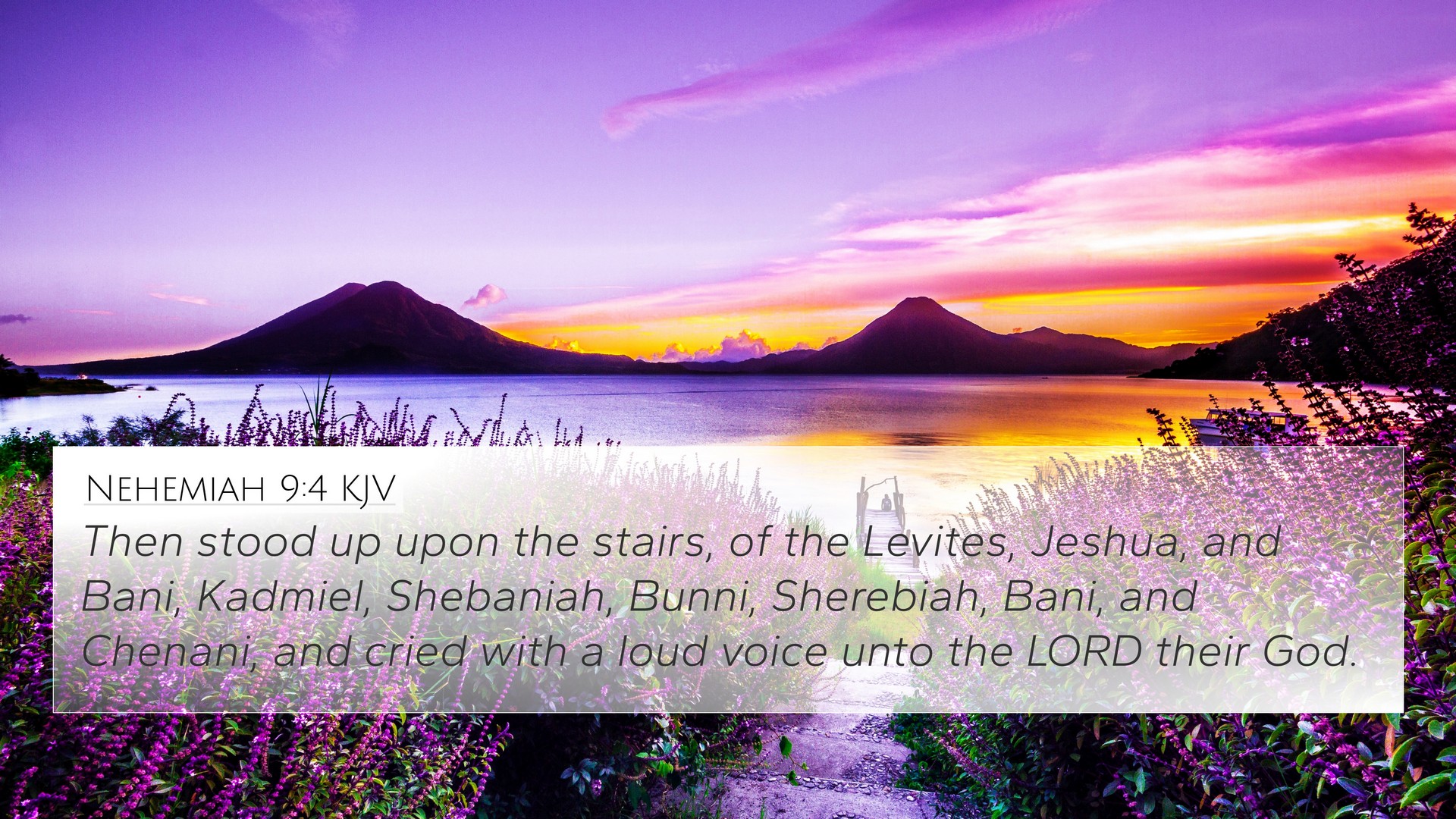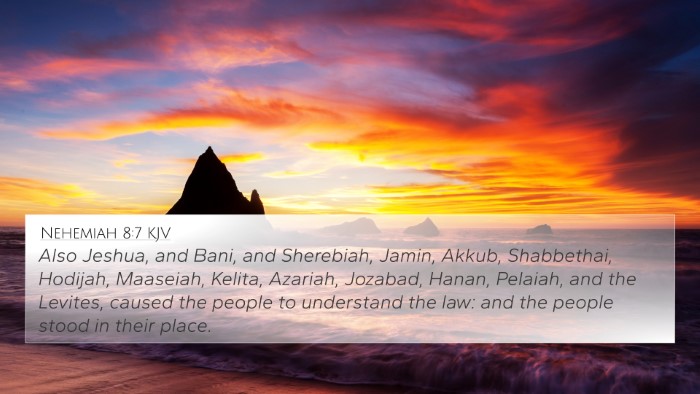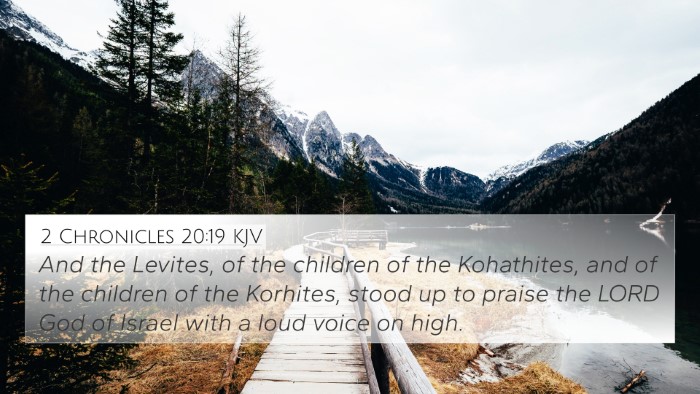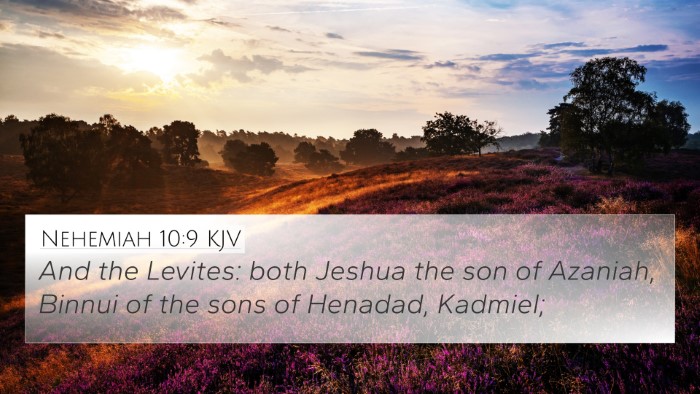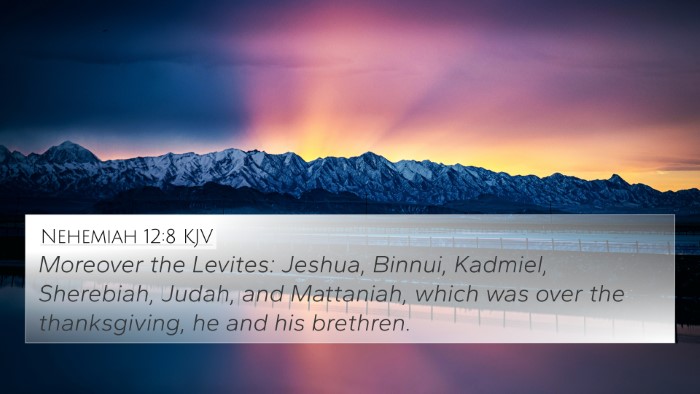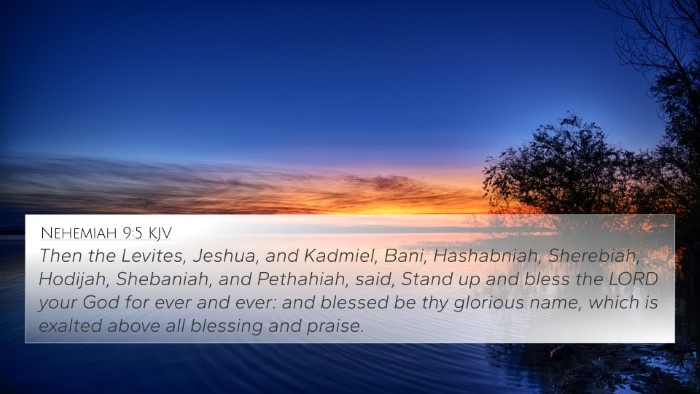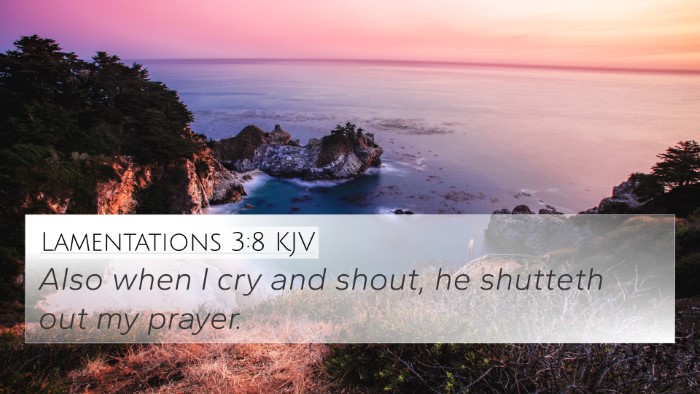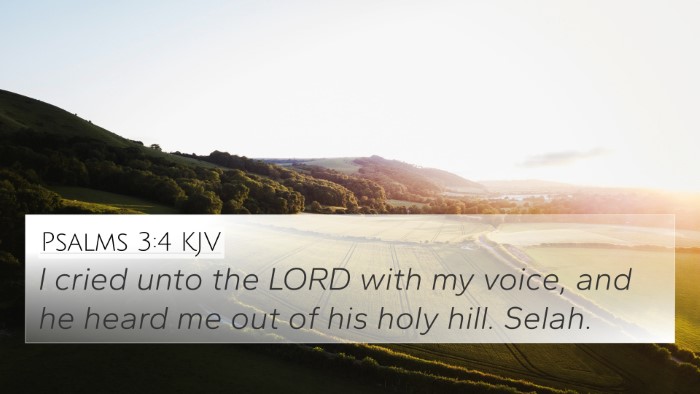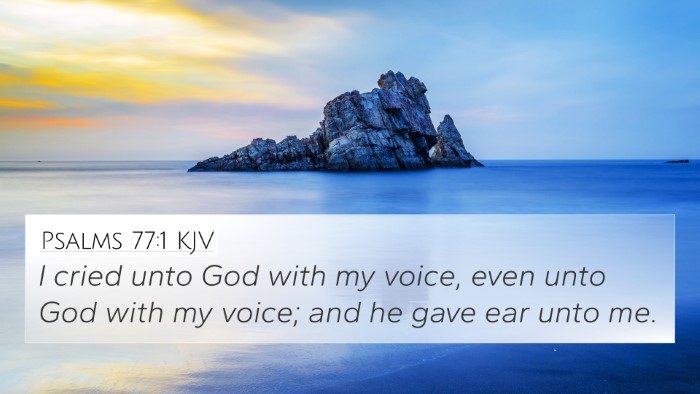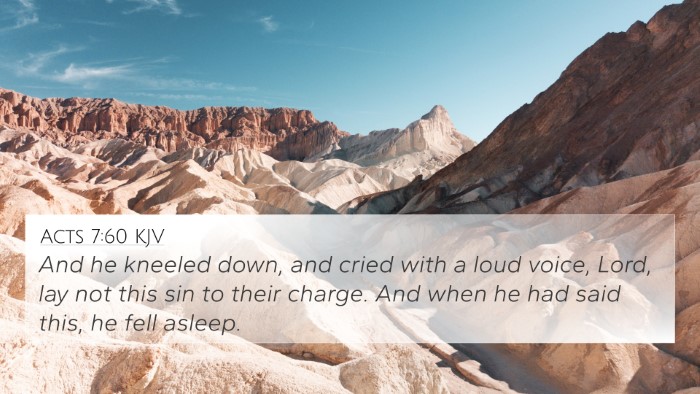Understanding Nehemiah 9:4
Nehemiah 9:4 states, "Then stood up upon the stairs of the Levites, Jeshua, and Bani, and Kadmiel, and Shebaniah, and Bunni, and Sherebiah, and Hodijah, and the Levites, and cried with a loud voice unto the Lord their God." This passage marks a significant moment during the reading of the law, where the Levites played a crucial role in leading the congregation in worship and responding to God's word.
Contextual Significance
This verse comes at a pivotal moment in the history of Israel, during the time of Nehemiah, when the Jewish people had returned from exile. They were rediscovering their identity and covenant relationship with God through the Scriptures. The Levites’ response signifies both reverence and dedication to the Lord.
Commentary Insights
-
Matthew Henry emphasizes the urgency and zeal with which the Levites approached their task. He notes that their shouting praises to God denotes a heartfelt desire to express their devotion and gratitude.
-
Albert Barnes points out the role of the Levites as mediators between the people and God, highlighting the importance of their ministry in guiding the prayers and worship of the congregation.
-
Adam Clarke elucidates the historical context, suggesting that the Levites’ actions were indicative of a renewed covenant commitment among the people, reflecting a collective response to God's faithfulness.
Thematic Connections
This verse connects with several broader biblical themes, including:
-
Worship and Reverence: Nehemiah 9:4 illustrates the communal aspect of worship, emphasizing how the people came together to worship God, reflecting themes found throughout Psalms 95:1-6 and Hebrews 10:25.
-
The Role of Leaders: The involvement of the Levites underscores the importance of spiritual leadership, akin to the call for leaders in James 5:14-15.
-
Repentance and Renewal: The act of responding to Scripture is linked with themes of repentance, seen in 2 Chronicles 7:14 and Acts 3:19.
-
Covenant Relationship: This moment of worship is tied to the covenant identity of Israel, which resonates with God's promises in Exodus 19:5 and Jeremiah 31:31-34.
Cross-References
To further understand Nehemiah 9:4, it is beneficial to explore the following cross-references:
- Deuteronomy 31:11: The assembly of Israel and the reading of the law.
- Ezra 3:11: The people responding with praise upon the foundation of the temple.
- 1 Chronicles 16:29: Giving glory to the Lord as due.
- Psalms 29:2: The call to worship God in the beauty of holiness.
- Nehemiah 8:6: Ezra’s prayer and blessing as the people responded to the reading of the law.
- Isaiah 12:5: Singing praises for God's great works.
- Matthew 5:16: Letting your light shine before others through acts of devotion.
Conclusion
Nehemiah 9:4 serves as a powerful reminder of the importance of communal worship and the role of leaders in guiding God's people in their relationship with Him. The insights shaped by commentary analysis and thematic connections reveal a rich tapestry of understanding that encourages readers to delve deeper into scripture. For those studying this verse, exploring the cross-references enriches one's grasp of the collective biblical narrative, further enhancing the theme of worship and reverence towards God.
When exploring the Bible verse cross-references, one can uncover the connections between Bible verses that enrich the understanding of linking Bible scriptures and assist in comparative Bible verse analysis. Utilizing tools for Bible cross-referencing imbues a more profound grasp of how different texts interweave, creating a cohesive picture of God's faithful relationship with humanity.
Understanding how Bible verses relate to each other and the thematic Bible verse connections not only enhances individual study but also aids in sermon preparation and personal growth in faith. This approach allows for a comprehensive Bible cross-reference guide that can serve as a valuable asset in Bible cross-reference study for anyone looking to deepen their grasp of Scriptural truths.
